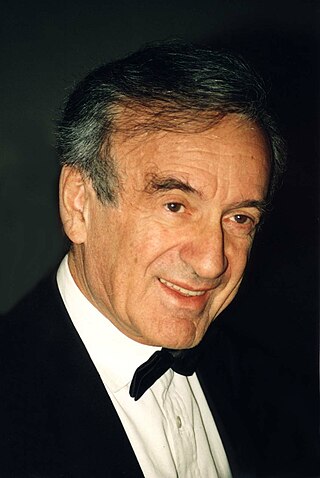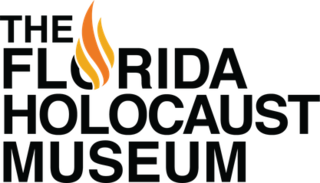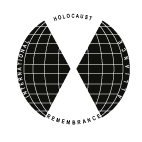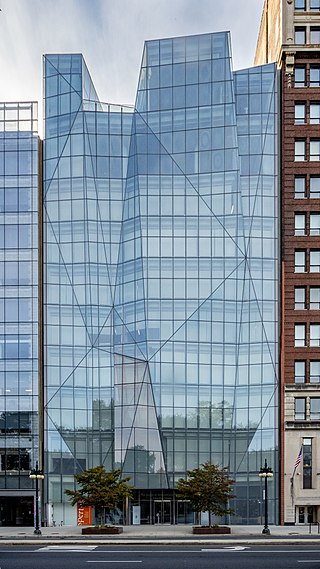
Elie Wiesel was a Romanian-born American writer, professor, political activist, Nobel laureate, and Holocaust survivor. He authored 57 books, written mostly in French and English, including Night, a work based on his experiences as a Jewish prisoner in the Auschwitz and Buchenwald concentration camps.

Skokie is a village in Cook County, Illinois, United States, neighboring the City of Chicago's northern border. Skokie's population, according to the 2020 census, is 67,824. Skokie lies approximately 15 miles (24 km) north of Chicago's downtown Loop. The name Skokie comes from a Potawatomi word for "marsh". For many years, Skokie promoted itself as "The World's Largest Village". Skokie's streets, like that of many suburbs, are largely a continuation of the Chicago street grid, and the village is served by the Chicago Transit Authority, further cementing its connection to the city.

The Chicago "L" is the rapid transit system serving the city of Chicago and some of its surrounding suburbs in the U.S. state of Illinois. Operated by the Chicago Transit Authority (CTA), it is the fourth-largest rapid transit system in the United States in terms of total route length, at 102.8 miles (165.4 km) long as of 2014, and the third-busiest rapid transit system in the United States, after the New York City Subway and Washington Metro. In 2016, the "L" had 1,492 rail cars, eight different routes, and 145 train stations. In 2022, the system had 103,524,900 rides, or about 367,000 per weekday in the second quarter of 2023.

The Yellow Line, alternatively known as the Skokie Swift, is a branch of the Chicago "L" in Chicago, Illinois. The 4.7-mile (7.6 km) route runs from the Howard Terminal on the north side of Chicago, through the southern part of Evanston and to the Dempster Terminal in Skokie, Illinois, making one intermediate stop at Oakton Street in Skokie.

The United States Holocaust Memorial Museum (USHMM) is the United States' official memorial to the Holocaust. Adjacent to the National Mall in Washington, D.C., the USHMM provides for the documentation, study, and interpretation of Holocaust history. It is dedicated to helping leaders and citizens of the world confront hatred, prevent genocide, promote human dignity, and strengthen democracy.

The Museum of Jewish Heritage, located in Battery Park City in Manhattan, New York City, is a living memorial to those murdered in the Holocaust. The museum has received more than 2 million visitors since opening in 1997. The mission statement of the museum is "to educate people of all ages and backgrounds about the broad tapestry of Jewish life in the 20th and 21st centuries — before, during, and after the Holocaust."

The Holocaust Museum Houston is located in Houston's Museum District, in Texas. It is the fourth largest holocaust museum in the U.S. It was opened in 1996.
Tarik Samarah is a Bosnian photographer who works in artistic and documentary photography. Samarah was born in 1965 in Zagreb to Bosnian and Sudanese parents. He spent years compiling the project "Srebrenica - genocide at the heart of Europe". He has widely exhibited his works most notably at the Holocaust Museum in Washington DC and United Nations building in New York. He is also renowned for his billboard campaign in Republic of Serbia. The campaign exhibited the images of Srebrenica massacre on large commercial billboards in the cities across Serbia as a method of raising awareness about event that took place during the Srebrenica Genocide.

The Chicago North Shore and Milwaukee Railroad, also known as the North Shore Line, was an interurban railroad that operated passenger and freight service over an 88.9-mile (143.1 km) route between the Chicago Loop and downtown Milwaukee, as well as an 8.6-mile (13.8 km) branch line between the villages of Lake Bluff and Mundelein, Illinois. The North Shore Line also provided streetcar, city bus and motor coach services along its interurban route.

The Florida Holocaust Museum is a Holocaust museum located at 55 Fifth Street South in St. Petersburg, Florida. Founded in 1992, it moved to its current location in 1998. Formerly known as the Holocaust Center, the museum officially changed to its current name in 1999. It is one of the largest Holocaust museums in the United States. It was founded by Walter and Edith Lobenberg both of whom were German Jews who escaped persecution in Nazi Germany by immigrating to the United States. Holocaust survivor Elie Wiesel served as Honorary Chairman and cut the ribbon at the 1998 opening ceremony. The Florida Holocaust Museum is one of three Holocaust Museums that are accredited by the American Alliance of Museums. The museum works with the local community and survivors of the Holocaust to spread awareness and to educate the public on the history of the Holocaust.
National Socialist Party of America v. Village of Skokie, 432 U.S. 43 (1977), arising out of what is sometimes referred to as the Skokie Affair, was a landmark decision of the US Supreme Court dealing with freedom of speech and freedom of assembly. This case is considered a "classic" free speech case in constitutional law classes. Related court decisions are captioned Skokie v. NSPA, Collin v. Smith, and Smith v. Collin. The Supreme Court ruled 5–4, per curiam. The Supreme Court's 1977 ruling granted certiorari and reversed and remanded the Illinois Supreme Court's denial to lift the lower court's injunction on the NSPA's march. In other words: the courts decided a person's assertion that speech is being restrained must be reviewed immediately by the judiciary. By requiring the state court to consider the neo-Nazis' appeal without delay, the U.S. Supreme Court decision opened the door to allowing the National Socialist Party of America to march.

Skokie is a 1981 television film directed by Herbert Wise, based on a real life controversy in Skokie, Illinois, involving the National Socialist Party of America. This controversy would be fought in court and reach the level of the United States Supreme Court in National Socialist Party of America v. Village of Skokie.

The Dallas Holocaust and Human Rights Museum is a history education museum in Dallas, Texas, in the West End Historic District at the southeast corner of N. Houston Street and Ross Avenue. Its mission is to teach the history of the Holocaust and advance human rights to combat prejudice, hatred, and indifference. It features climate-controlled archives and a research library to expand education.

Oakton–Skokie is an 'L' station on the CTA's Yellow Line, which serves downtown Skokie. Previously, a station existed at this location which was in operation as part of the North Shore Line's Niles Center Route from 1925 until 1948, and later demolished in 1964. The current station opened on April 30, 2012.

The Northern Transylvania Holocaust Memorial Museum is located in Șimleu Silvaniei, Sălaj County, Romania, and was opened September 11, 2005. The museum is operated and maintained by the Jewish Architectural Heritage Foundation of New York and Asociația Memoraliă Hebraică Nușfalău, with the support of the Claims Conference, Elie Wiesel National Institute for Studying the Holocaust in Romania, among other philanthropic and pedagogical partners.
Aryeh Neier is an American human rights activist who co-founded Human Rights Watch, served as the president of George Soros's Open Society Institute philanthropy network from 1993 to 2012, had been National Director of the American Civil Liberties Union from 1970 to 1978, and he was also involved with the creation of the group SDS by being directly involved in the group SLID's renaming.

The International Holocaust Remembrance Alliance (IHRA) is an intergovernmental organization founded in 1998 which unites governments and experts to strengthen, advance and promote Holocaust education, research and remembrance worldwide and to uphold the commitments of the Declaration of the Stockholm International Forum on the Holocaust. The IHRA has 34 member countries, one liaison country and seven observer countries.
Holocaust studies, or sometimes Holocaust research, is a scholarly discipline that encompasses the historical research and study of the Holocaust. Institutions dedicated to Holocaust research investigate the multidisciplinary and interdisciplinary aspects of Holocaust methodology, demography, sociology, and psychology. It also covers the study of Nazi Germany, World War II, Jewish history, religion, Christian-Jewish relations, Holocaust theology, ethics, social responsibility, and genocide on a global scale. Exploring trauma, memories, and testimonies of the experiences of Holocaust survivors, human rights, international relations, Jewish life, Judaism, and Jewish identity in the post-Holocaust world are also covered in this type of research.
Elie Wiesel and his wife founded the Elie Wiesel Foundation in 1986, the same year he received the Nobel Prize for Peace, using the award money from the prize to fund the organization. Wiesel has experienced inequality first hand through the Holocaust and has been working in several different areas involving the Holocaust. The Foundation's mission statement, created in remembrance of the Holocaust, is "to combat indifference, intolerance and injustice through international dialogue and youth-focused programs that promote acceptance, understanding and equality." Wiesel has dedicated the foundation to bringing together people from all over the world to share ideas on political, cultural, religious, and academic boundaries. The foundation organizes contests, awards, and conferences for youths in both the United States and other countries experiencing cultural conflicts.




















